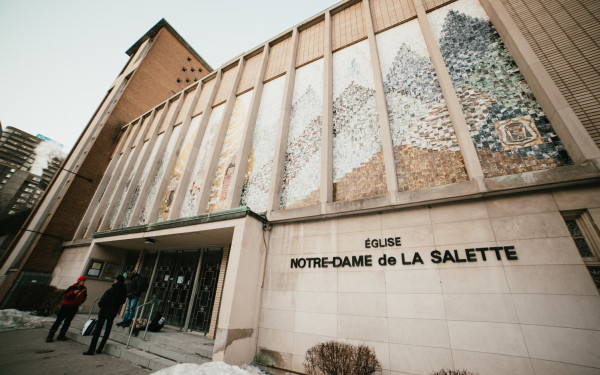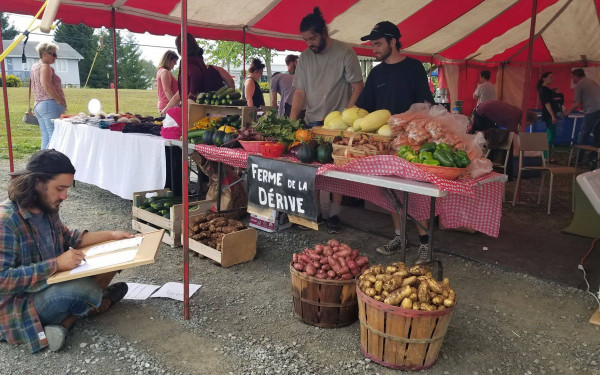Food security at a distance
How Concordia’s food groups are confronting community hunger with emergency food baskets
COVID-19 has produced a challenging new way of life—one that is distanced, limited, and bleak—but when we consider those hit hardest by the pandemic, the challenges are not a matter of normalcy but of survival.
Many have been dealing with food insecurity since the start of the pandemic, as shelters and food banks have been required to reorganize, completely uproot, or stop their services. In response to increased demand, organizations across Montreal and within Concordia have adopted emergency food basket initiatives as a way to foster food security while also building relationships with local farmers.
Food security describes the extent to which individuals have access to enough affordable food to provide proper nutrition and subsistence.
“There was already a call for food security and a need for it,” said Nora Fabre, external coordinator of the Concordia Food Coalition. “And these food basket programs are sort of like the readapted versions of what once was when campus was open.”
According to Food Insecurity Policy Research, food insecurity exists on a spectrum that includes worrying about whether your next paycheque will buy groceries, not being able to afford nutritious food, and missing meals. A survey from Statistics Canada shows that in 2017-2018, 11.1 per cent of the population of Quebec was food insecure, with 2.3 per cent experiencing severe food insecurity.
Numerous campus groups have been established to help foster the creation of an autonomous, ethical, and sustainable food system at Concordia. People’s Potato, The Hive, and Le Frigo Vert each provided free or affordable meals to students as well as community members in downtown Montreal.
“Right now, [with] these food initiatives, I feel like we’re just kind of scrambling to plug in the holes in our food system.” – Nora Fabre
Faced with the challenge of providing food while abiding by COVID regulations, emergency food baskets have emerged as a way to ensure the health and subsistence of students and community members, even at a distance.
Concordia’s food groups have adapted to the COVID context, according to Fabre. Since March, Innovation Jeunes and the CFC have joined forces to distribute hundreds of emergency food baskets containing locally and sustainably produced, nutritious foods every week.
Fabre explains that, due to COVID, organizations that serve marginalized populations in Montreal have not been able to provide the same housing or meal services they once did. Since housing and feeding people is usually done in close proximity to others, the reduced scope of emergency services across Montreal has left countless without their basic needs for survival, including food.
“Right now, [with] these food initiatives, I feel like we're just kind of scrambling to plug in the holes in our food system,” said Fabre.
She emphasizes the importance of collaboration by groups at Concordia to confront this problem. “It's brought a lot more collaboration between organizations that have very similar missions or seek to address some of the same issues. [...] I've really noticed a lot of collaboration between food initiatives around the city and locally at Concordia,” she said.
Fabre noted People’s Potato has reopened its food bank by operating out of Le Frigo Vert, which isn’t technically on campus.
Plugging these holes in our food system is only made possible through the work of dedicated volunteers and coordinators. If you need assistance or are interested in getting involved with the Concordia Food Coalition, or any other food group at Concordia, head to their website for a comprehensive list.
This article originally appeared in The Food Issue, published November 3, 2020.







_600_375_s_c1.png)